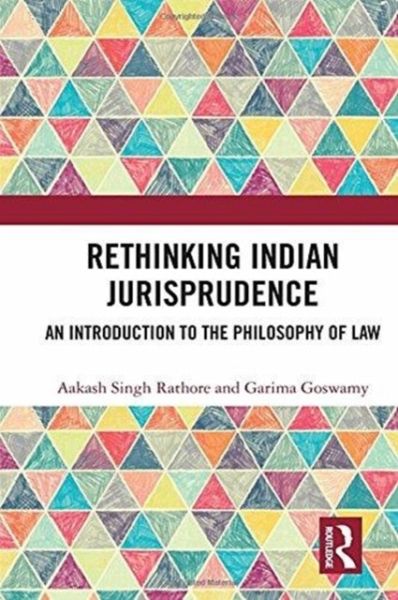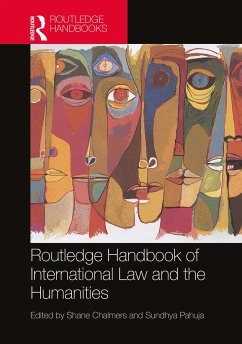
Rethinking Indian Jurisprudence
An Introduction to the Philosophy of Law

PAYBACK Punkte
77 °P sammeln!
What is law? What is the source of law? What is the law for? How does law differ from other norms or codes of conduct? What is the difference between law and morality? Who is obligated to follow the law and why? What is the difference between moral and legal obligation?This book addresses these foundational questions about the law in general, and seeks to reorient our thoughts to the specific nature of law in India, the India of today, and the possible India of the future.This volume:covers relevant foundational elements, concepts and questions of the discipline;brings the uniqueness of Indian...
What is law? What is the source of law? What is the law for? How does law differ from other norms or codes of conduct? What is the difference between law and morality? Who is obligated to follow the law and why? What is the difference between moral and legal obligation?
This book addresses these foundational questions about the law in general, and seeks to reorient our thoughts to the specific nature of law in India, the India of today, and the possible India of the future.
This volume:
covers relevant foundational elements, concepts and questions of the discipline;brings the uniqueness of Indian Philosophy of Law to the fore;critically analyzes the major theories of jurisprudence;examines legal debates on secularism, rationality, religion, rights and caste politics; andpresents useful cases and examples, including free speech, equality and reservation, queer law, rape and security, and the ethics of organ donation.
Lucid and accessible, the book will be indispensable to students, teachers and scholars of law, philosophy, politics as well as philosophy of law, sociology of law, legal theory and jurisprudence.
This book addresses these foundational questions about the law in general, and seeks to reorient our thoughts to the specific nature of law in India, the India of today, and the possible India of the future.
This volume:
covers relevant foundational elements, concepts and questions of the discipline;brings the uniqueness of Indian Philosophy of Law to the fore;critically analyzes the major theories of jurisprudence;examines legal debates on secularism, rationality, religion, rights and caste politics; andpresents useful cases and examples, including free speech, equality and reservation, queer law, rape and security, and the ethics of organ donation.
Lucid and accessible, the book will be indispensable to students, teachers and scholars of law, philosophy, politics as well as philosophy of law, sociology of law, legal theory and jurisprudence.













